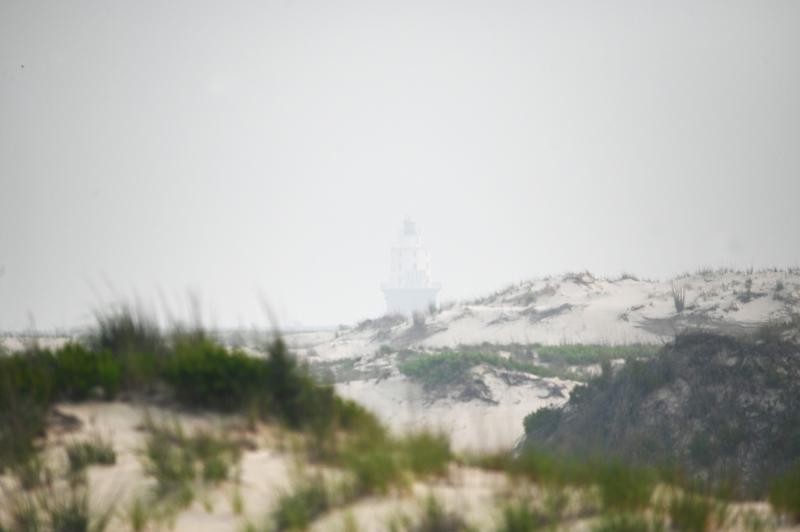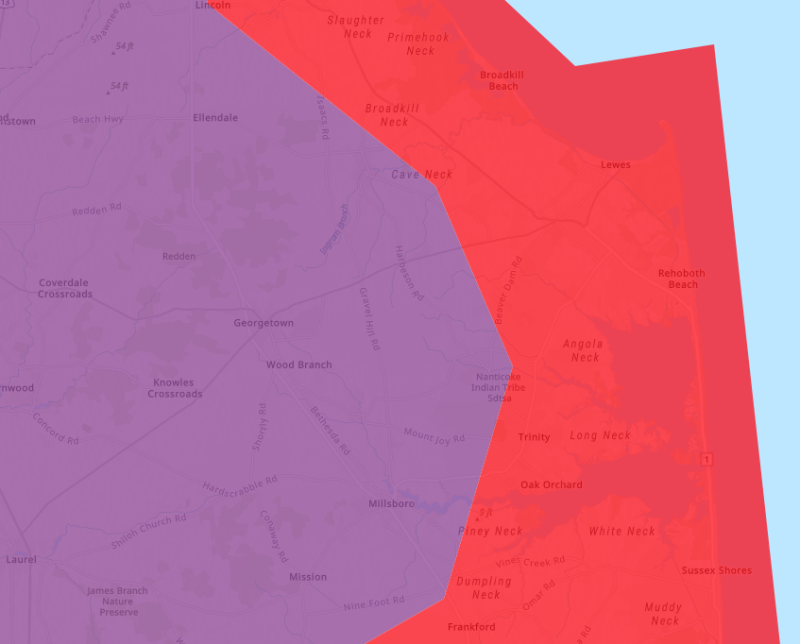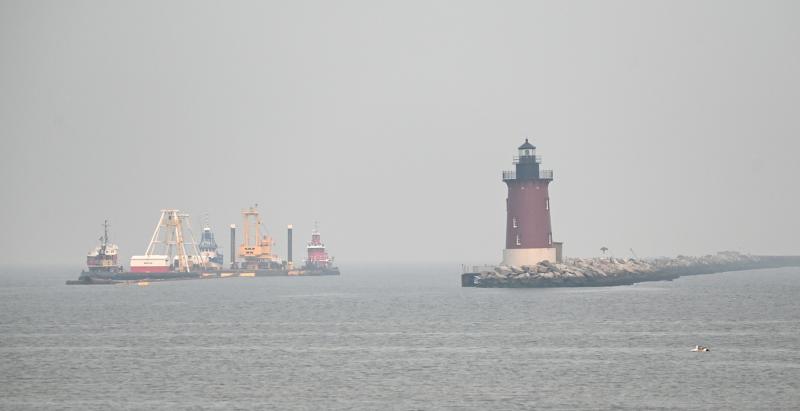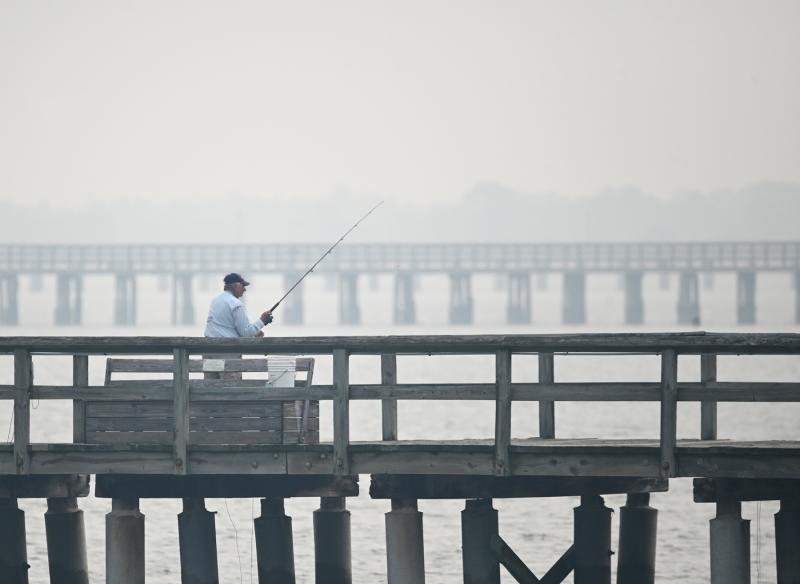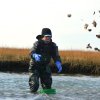The harmful effects of Canadian wildfires have reached the coasts of Delaware beaches.
Amid deteriorating air quality and a code red advisory from the Delaware Department of Natural Resources and Environmental Control, some Delaware beach patrols took measures to protect their seasonal and full-time employees.
Shortly following the code red and an email from DNREC explaining the worsening air quality, North Shores Beach Patrol Capt. Kent Buckson decided to reduce his staff by 90% for June 8, leaving a few senior lifeguards to patrol the beach from ATVs. He sent out a text to surrounding patrols explaining his reasoning.
Buckson said while the No. 1 goal of his operation is public safety, it is important to protect and take care of those protecting and caring for others. Many of the guards on his patrol and surrounding operations are seasonal employees. Buckson added that it’s not just public safety employees who could be exposed and hopes other industries consider the health of their seasonal employees.
DNREC’s projections for the weekend have the air quality index dropping to 137, unhealthy for sensitive groups, June 9, then down to 99, moderate, June 10. Based on those projections, Buckson said, he plans to open all beach and community operations beginning Friday, June 9 and into the weekend. He added any employee who requests off from work due to air quality concerns will be granted time off.
Lewes Beach Patrol Capt. Strohm Edwards implemented a rotating watch for his guards. On June 8, the guarded beach area was reduced to Savannah Beach, and Edwards informed those on Johnnie Walker Beach that it would be unguarded for the day. He advised them to shift north to Savannah Beach, where the lifeguard shack is. During the shift, guards rotated in and out, and only worked half-day shifts. Edwards said his patrol cannot maintain observations from the parking lot, and had guards patrol for about a half-hour and rotate back inside for an hour. He has advised any of his guards who have health concerns to take the day off and not feel guilty for doing so.
Edwards said the situation is unprecedented in his time serving as a lifeguard. He said LBP will continue to monitor the situation and make decisions based on the health and welfare of the guards. He noted that if his guards aren’t healthy enough to protect the beach, then that puts everyone’s health at risk. He said he will work with Lewes Parking Enforcement to ensure its staff remains safe.
Rehoboth Beach Patrol Capt. Jeff Giles said his operation will be following DNREC’s lead in regard to a reduction or modification. Guards at Delaware State Parks beaches and Rehoboth Beach will be taking more breaks and they have suspended physical training. DNREC said it will continue to monitor air quality conditions.
Farther south, Dewey Beach Patrol Capt. Todd Fritchman finds himself in a different situation. He said Dewey has been inundated with the most “June bugs” he has witnessed in his 44 years of patrolling Delaware waters. June bugs are mostly recent college and high school graduates celebrating their accomplishments.
“We are at full force and have a capacity crowd with these June bugs,” he said June 7. “Our hands are full with managing public safety, and so we’ll be at full staff and maintain normal operations.”
Fritchman said his patrol has experienced problems, and the focus remains on patrolling the waters and regulating disruptive, sometimes unlawful, behavior.
According to DNREC, Delaware’s air quality score was 158 June 7 and reached 221 the afternoon of June 8. On a scale of 0-500, 158 is unhealthy and 221 is considered very unhealthy. The agency said sensitive groups affected by particle pollution exposure who benefit the most from exposure-reduction measures include people with heart or lung diseases, older adults and children.
The Delaware Department of Health and Social Services advises residents and visitors to avoid strenuous or prolonged outdoor activity. They add that people with respiratory conditions should stay inside and make sure they have their inhalers or medicine. Officials advise outdoor events should be moved indoors or rescheduled.
The air quality index map and information about the ratings can be found at AirNow.gov.
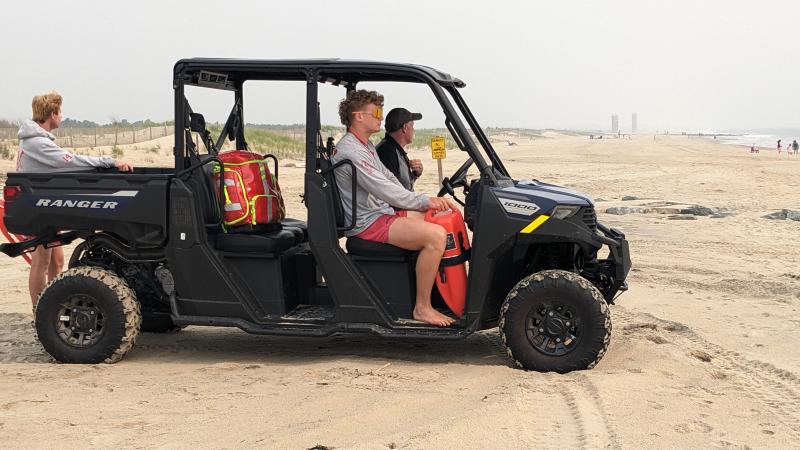
.jpeg)


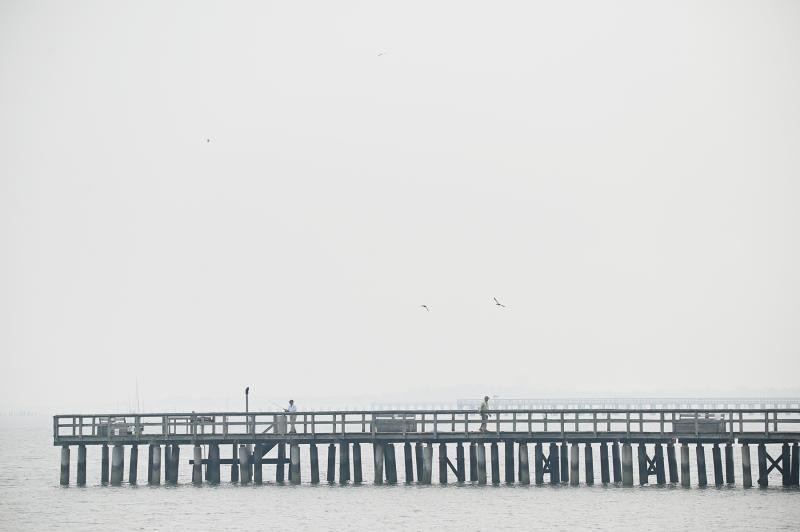
Aaron Mushrush joined the sports team in Summer 2023 to help cover the emerging youth athletics scene in the Cape Region. After lettering in soccer and lacrosse at Sussex Tech, he played lacrosse at Division III Eastern University in St. David's, PA. Aaron coached lacrosse at Sussex Tech in 2009 and 2011. Post-collegiately, Mush played in the Eastern Shore Summer Lacrosse League for Blue Bird Tavern and Saltwater Lacrosse. He competed in several tournaments for the Shamrocks Lacrosse Club, which blossomed into the Maryland Lacrosse League (MDLL). Aaron interned at the Coastal Point before becoming assistant director at WMDT-TV 47 ABC in 2017 and eventually assignment editor in 2018.














